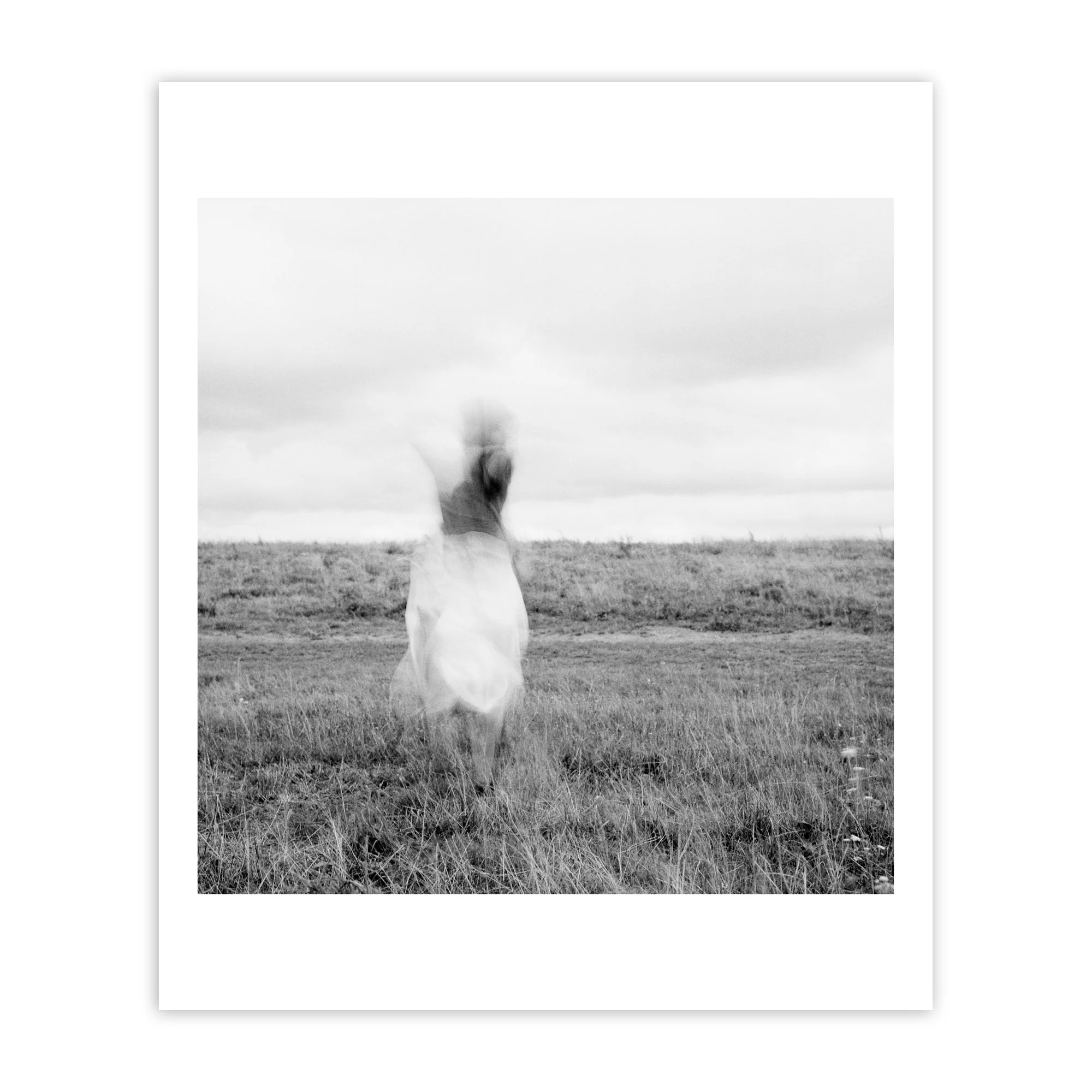 Image 1 of 1
Image 1 of 1


Emily O'Connell - and then I ran
Professionally printed on 10x12 Arches 88 fine art matte paper, 100% cotton-rag.
‘and then I ran’ employs self-portraiture, image and text, visualising the narrative of my grandmother’s recollection of escaping a mother and baby home, 1964, Ireland.
Mother and baby homes ran from 1922 to 1998, funded by the government and run by religious order. These homes forced unwed mothers into secrecy while neglecting to provide adequate care for mothers and babies. The project explores Ireland’s deep shame culminating from the separation and exportation of babies, as well as oppressive conditions experienced by these women. Around 56,000 women and 57,000 children were placed into these homes.
‘and then I ran’ has three elements interlaced throughout. Black and white images are performative reenactments referring to my grandmother's escape and a visual representation of loss. The colour landscape imagery brings the viewer to a specific landscape or still life to revisit a memory.
The work uses different photographic techniques such to create blur and distortion as a nod to the loss of identity that these women had to go through. I chose not to show my face in the self-portraits as I was re-enacting my grandmother's story, while asking further questions regarding the loss of identity Irish women experienced throughout history.
Emily O'Connell's work focuses on equality and women’s health with a particular interest in phototherapy and using visual arts as a way to sensitively approach topics of trauma. She uses re-enactment and self-portraiture, as well as a research-based practice mixing documentary photography and performative elements throughout her work. Emily is currently one of New Irish Works artists with Photo Ireland and has a published TLP Edition of her book 'and then I ran' with Photo Ireland. Her work has been exhibited at Peckham 24, Photo London and was one of the Photo-book winners at Belfast Photo 2024.
“Photofusion has long been a vital space for creativity in Brixton, opening doors for photographic practitioners. I’m glad to support the Educational Trust by donating one of my prints, helping to ensure that photography remains accessible, inspiring, and alive for the next generation.” -Emily O’Connell
Print is unsigned. Your purchase will contain a letter of authenticity from Photofusion noting Title of Print, Photographer and signed by Photofusion's Director. Due to all printing being completed expertly in-house, please allow a period of up to 28 days for your order to be shipped.
Professionally printed on 10x12 Arches 88 fine art matte paper, 100% cotton-rag.
‘and then I ran’ employs self-portraiture, image and text, visualising the narrative of my grandmother’s recollection of escaping a mother and baby home, 1964, Ireland.
Mother and baby homes ran from 1922 to 1998, funded by the government and run by religious order. These homes forced unwed mothers into secrecy while neglecting to provide adequate care for mothers and babies. The project explores Ireland’s deep shame culminating from the separation and exportation of babies, as well as oppressive conditions experienced by these women. Around 56,000 women and 57,000 children were placed into these homes.
‘and then I ran’ has three elements interlaced throughout. Black and white images are performative reenactments referring to my grandmother's escape and a visual representation of loss. The colour landscape imagery brings the viewer to a specific landscape or still life to revisit a memory.
The work uses different photographic techniques such to create blur and distortion as a nod to the loss of identity that these women had to go through. I chose not to show my face in the self-portraits as I was re-enacting my grandmother's story, while asking further questions regarding the loss of identity Irish women experienced throughout history.
Emily O'Connell's work focuses on equality and women’s health with a particular interest in phototherapy and using visual arts as a way to sensitively approach topics of trauma. She uses re-enactment and self-portraiture, as well as a research-based practice mixing documentary photography and performative elements throughout her work. Emily is currently one of New Irish Works artists with Photo Ireland and has a published TLP Edition of her book 'and then I ran' with Photo Ireland. Her work has been exhibited at Peckham 24, Photo London and was one of the Photo-book winners at Belfast Photo 2024.
“Photofusion has long been a vital space for creativity in Brixton, opening doors for photographic practitioners. I’m glad to support the Educational Trust by donating one of my prints, helping to ensure that photography remains accessible, inspiring, and alive for the next generation.” -Emily O’Connell
Print is unsigned. Your purchase will contain a letter of authenticity from Photofusion noting Title of Print, Photographer and signed by Photofusion's Director. Due to all printing being completed expertly in-house, please allow a period of up to 28 days for your order to be shipped.
